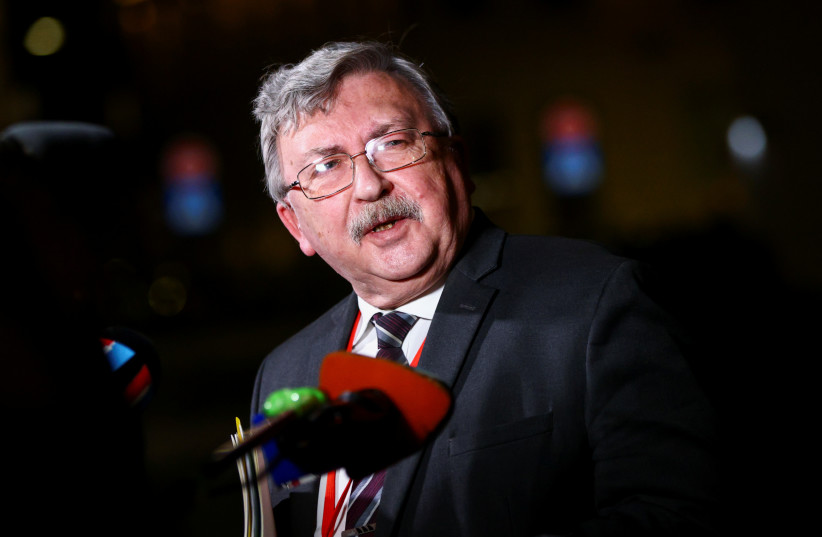Iran nuclear talks resumed in Vienna on Tuesday for what diplomats have said may be their conclusion.
“The current stage can be called the final one,” Russian chief negotiator Ambassador Mikhail Ulyanov, who often has the most optimistic takes on the talks, said in an interview with Russian news site Kommersant.
“The final document is drafted… It is quite voluminous, more than 20 pages,” he said.
The final draft is the 2015 Joint Comprehensive Plan of Action “restored in its original form,” but “due to the fact that the situation has changed a lot over the past few years, some small new nuances may appear,” Ulyanov said.
“We still have to solve a number of issues, including rather fundamental ones,” he added.

Once an agreement is reached, it may take a month or two for the sides to implement it, Ulyanov said.
Russia is “sympathetic to Iranian wishes” because it “is really the injured party,” he said. “Iran did not withdraw from the JCPOA.”
World powers have been conducting negotiations since April, with several breaks, for Iran and the US to return to compliance with the JCPOA, which restricted Iran’s enrichment and stockpiling of uranium until 2030 in exchange for the gradual lifting of sanctions.
The US left the deal in 2018, citing evidence Iran hid details of its nuclear program and malign Iranian behavior in the Middle East, including proxy warfare and its ballistic-missile program.
Iran has since enriched uranium to 60%, higher than any country that does not have nuclear weapons; weapons-grade uranium is 90% enriched.
Iran walked away after two months of talks, citing its presidential election, and returned to Vienna more than five months later at the end of November. Days later, Iran launched a new class of advanced centrifuges.
Since then, the US and the E3 – France, Germany and the UK – have said there were only weeks left to restore the JCPOA’s nonproliferation benefits, and they have lamented the slow pace of talks.
The negotiations have been indirect, with the E3, Russia, China and EU representatives shuttling between the Iranian and American delegations, because Iran refuses to talk directly with the US.
The US and E3 have also accused the Iranian side of not deciding if it really wants to reach a deal.
Iranian Foreign Minister Hossein Amirabdollahian on Monday said he hoped “to reach a final agreement at this stage.
“Whether we can lead the negotiations to a good agreement in the coming days now depends on the initiative, intentions and behavior of the three European countries and the American side,” Amirabdollahian said, according to The Tehran Times.
The prospects of the Vienna talks remained uncertain, US State Department spokesman Ned Price said, adding that last week’s decision to waive sanctions on third parties taking part in Iranian civilian nuclear activity would help with implementation of the JCPOA if it is restored.
“This prepares us in the event we are able to achieve a mutual return to compliance with the JCPOA,” he said. “This could still very much go one of two ways: a mutual return to compliance if Iran is in a position and willing and able to make the sort of political commitments necessary; or the alternatives that we’ve talked about in some less detail.”
The waiver does not mean more money would go to Iran, Price said, but was “about nuclear nonproliferation and nuclear safety. I would suspect most reasonable observers would agree that both of these things are in our vital national interest regardless of what happens with the JCPOA.”
